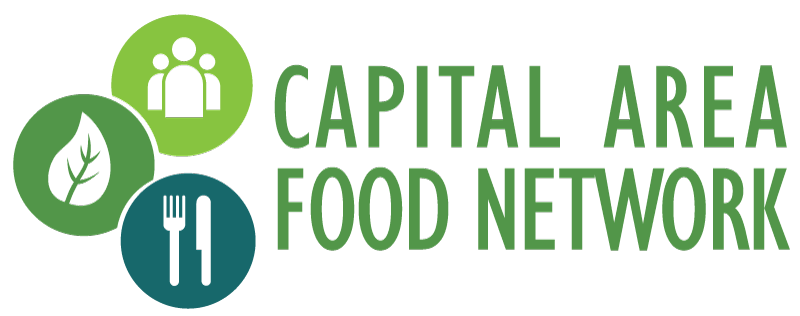Race Equity Resources
The CAFN resources page holds general food system resources that are relevant to CAFN’s members in Wake County. These general resources are divided into two categories:
For circle-specific resources, please visit our circle pages and scroll down to the bottom of each page.
CAFN Statement for racial equity
October 1, 2020
Capital Area Food Network recognizes that racism is ‘baked’ into today’s food system, harkening back to the slave labor upon which the US economy was built. As a result of continued systems of oppression over generations, Blacks, Native Americans, Asians, and Hispanics…
To reimagine systems that create inequitable outcomes for Black and Brown residents, the DEI Alliance and its partners built on the longstanding work in the community to create a Blueprint to dismantle systemic racism in Wake County, North Carolina. The Blueprint is a living…
Equitable Food-oriented development
October 2019
Food is central to the health, well-being, economic resilience, cultural heritage, and self-preservation of communities. Healthy, sustainable, accessible foods can relieve crucial threats such as diet-related illnesses, food insecurity, social isolation and….
Food Justice Training Series - Video Recordings
January 31st, 2023
This research centered on the question: How does white supremacy culture play out in the food insecurity and food access space in the United States? To become anti-racist, food system actors must understand how white supremacy culture narratives function to…
In the 1930s the federal government created redlining maps for almost every major American city. Mapping Inequality lets you explore these maps and the history of racial and ethnic discrimination in housing policy.
For more than a decade Morgan Dixon and Vanessa Garrison have been working to mobilize Black women to improve their health one step at a time, literally. In 2010 the friends founded GirlTrek with the mission of inspiring fellow Black women to change their lives by walking.
Mismatched: Philanthropy’s Response to the Call for Racial Justice is the most comprehensive assessment of racial equity and racial justice funding to date, providing a detailed analysis of funding from 2015–2018 and a preliminary analysis for 2020…
Women and girls of color are pivotal frontline leaders and organizers in the powerful social change movements that pave the way for a more equitable and just democracy. Our report, Pocket Change: How Women and Girls of Color Do More with Less, seeks to better…
Policy & Planning
The Wake County Food Security Plan Update is the result of an equity-based steering committee, partner-organization workgroups, and research-based analysis of similar models. The process was conducted from June of 2022 to February of 2023, and…
Tri-COG FEEDS Goals:
Identify the infrastructure needed to shorten food supply chains,
Drive economic development…
COVID-19’s effect on the food system has been complex. Despite the pandemic’s initial shock to supply chains, the system has largely functioned as intended. Yet that is not necessarily a relief for many, who have experienced harm from embedded inequities…
COVID-19 exposed the fragility in our food system, nationally and here in Wake County. Demand at food pantries soared. Grocery stores ran short on key staples. Families struggled to access shelf-stable staples, culturally appropriate food and to access fresh, healthy, nutritious…
